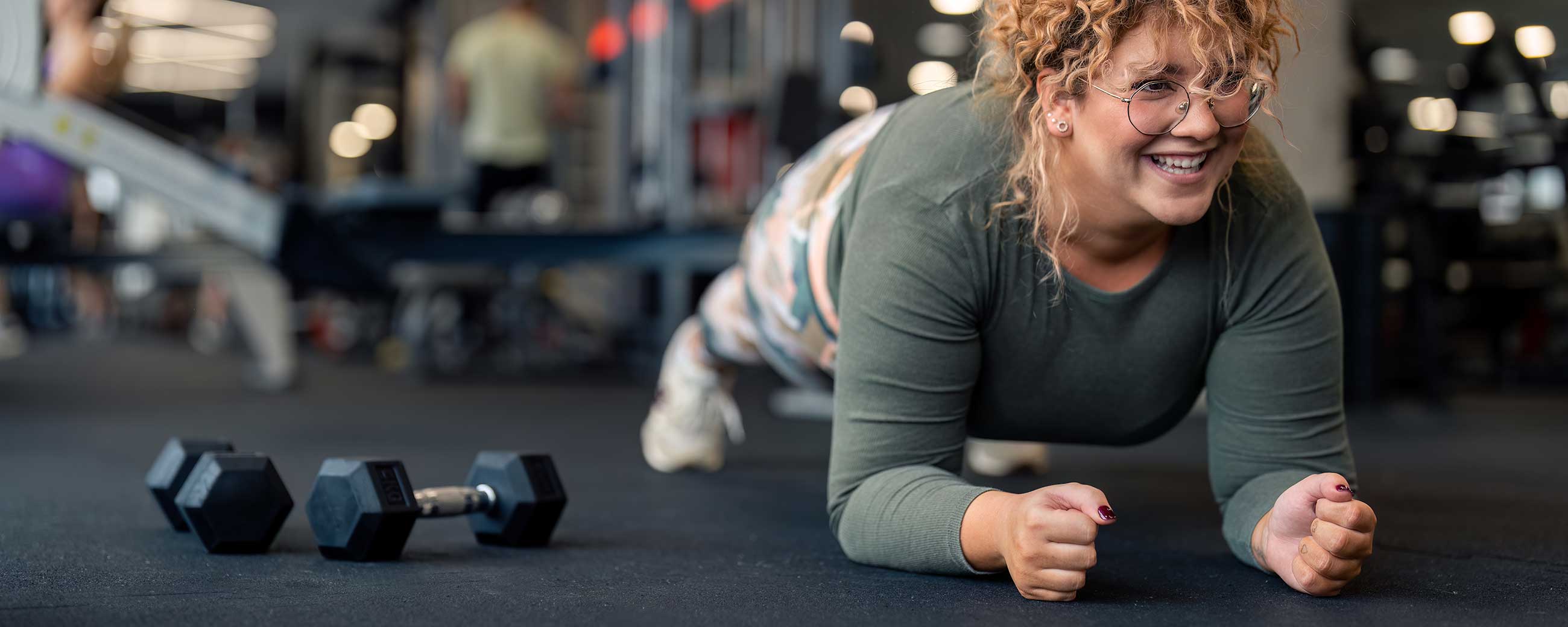
Ozempic and Muscle Loss: What You Need to Know

Taking Ozempic can come with a host of side effects, such as digestive issues (as in Virta member Barbara’s case), headaches, dizziness and higher heart rate. Could muscle loss be another Ozempic side effect?
Ozempic and Muscle Loss: What the Research Says
Weight loss can have numerous health benefits: better blood sugar levels, lower risk of diabetes complications and decreased risk of heart disease and cancer, to name a few. However, losing a significant amount of weight means you’re not only losing fat, but also lean body mass (muscle).
Any form of rapid weight loss — whether through lifestyle changes like diet and exercise or a GLP-1 drug like Wegovy, Ozempic or Mounjaro — can trigger muscle and bone loss, also called sarcopenia. While sarcopenia is typically associated with age-related muscle loss, it can also be caused by inadequate protein intake, malnutrition, physical inactivity, insulin resistance and other factors.
Sarcopenia can lead to:
- Muscle weakness
- Poor balance
- Trouble walking and getting around
- Increased risk of falls, fractures and frailty
To stay active and strong, it’s essential to support your muscle and bone health.
Ozempic and Bone Health: Should You Be Concerned?
Does Ozempic cause bone loss or osteoporosis? Rapid weight loss can decrease your bone density. Low bone density is called osteopenia. Left untreated, it can develop into osteoporosis, a “silent” condition that can increase your risk of bone fractures. So, if you take Ozempic for weight loss, it’s essential to maintain your bone health.
How to Prevent Muscle and Bone Loss on Ozempic
If you’re taking a GLP-1 to lose weight, there are several ways you can minimize muscle and bone loss.
Eat Enough Protein and Calcium
Eating enough protein is a research-backed way to preserve your muscle mass. If you’re on a ketogenic diet as a Virta member, aim for 1.2 to 1.75 grams of protein per kilogram of “reference body weight.” Good sources of protein include:
- Dairy, including cheese, Greek yogurt (choose a plain, unsweetened variety) and cottage cheese
- Eggs
- Beef
- Turkey
- Chicken
- Fish
- Shellfish
- Nuts and seeds
- Tofu
Consuming enough calcium in your diet is crucial for bone health. All adults between 19 and 50 should aim for 1,000 milligrams (mg) of calcium per day. Women 51 and older and men 71 and older should consume 1,200 mg per day. Good sources of calcium include:
- Dairy
- Tofu
- Leafy greens like kale, collard greens and spinach
- Canned salmon with bones
- Tuna
- Sardines
- Chia seeds
- Almonds
Vitamin D is also important for bone health. The recommended daily allowance for adults 19 to 70 is 600 international units (IUs) daily. For adults 71 and older, the recommended amount is 800 IUs. Good sources of vitamin D include:
- Oily fish like mackerel, salmon, trout and tuna
- Fortified milk, orange juice and cereals
Strength Training and Cardio
Research has shown that endurance and strength training exercises can help maintain muscle mass during weight loss. Weight-bearing exercises, such as those listed below, are also beneficial for your bone health. Aim for:
- At least two resistance training sessions per week (such as weight lifting, Pilates, barre, yoga, tai chi or bodyweight exercises)
- 150 minutes of moderate-intensity cardio per week (like walking, dancing, aerobics, running, cycling, hiking, tennis or swimming)
Stay Hydrated
Staying well-hydrated is an essential part of your overall health and can enhance your daily function and exercise performance.
Prioritize Sleep
Getting good-quality sleep can help balance your hunger and fullness hormones, resulting in increased energy and better lifestyle choices that support your bone and muscle health.
When to Talk to Your Doctor
If you are on a weight-loss journey with a GLP-1 medication or lifestyle changes, talk to your doctor about how you can lose weight safely without compromising your muscle mass or bone health. Your provider can offer personalized recommendations tailored to your health history and lab results.
The Takeaway
While drugs like Ozempic can help you lose weight, they can also cause unpleasant side effects. Lifestyle changes, like a nutritious, blood-sugar-balancing diet and regular exercise, can help you achieve your health and weight loss goals while minimizing muscle loss, bone loss and other side effects.
If you are diagnosed with type 2 diabetes, are overweight, or just want to live a healthier lifestyle, Virta Health may be able to help. By making healthy lifestyle changes in a medical setting with supportive resources like 1:1 virtual coaching, you can regain control of your health and feel like yourself again. See if you’re eligible for Virta Health here.
This blog is intended for informational purposes only and is not meant to be a substitute for professional medical advice, diagnosis, or treatment. Always seek the advice of your physician or other qualified health provider with any questions you may have regarding a medical condition or any advice relating to your health. View full disclaimer
Are you living with type 2 diabetes, prediabetes, or unwanted weight?








